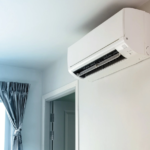Dealing with snoring can be a disruptive challenge for both the snorer and their sleep partner. Whether it’s caused by nasal congestion, sleep position, or underlying health issues, finding effective solutions is crucial for achieving restful sleep. This article explores practical ways to manage snoring, promoting better sleep quality and overall well-being.
Understanding the Causes
Snoring often results from the relaxation of muscles and tissues in the throat and mouth during sleep, which can obstruct airways and create turbulent airflow. Several factors contribute to snoring, including:
Sleep Position and Habits: Sleeping on one’s back can cause the tongue and soft palate to collapse against the back of the throat, narrowing the airway and triggering snoring. Encouraging side-sleeping positions or using specialized pillows that support proper head and neck alignment can alleviate this issue.
Nasal Congestion: Allergies, colds, or sinus infections can lead to nasal congestion, forcing individuals to breathe through their mouths during sleep. This increases the likelihood of snoring. Using saline nasal sprays or decongestants before bedtime can help clear nasal passages, reducing snoring intensity.
Weight and Lifestyle: Excess weight, particularly around the neck and throat, can contribute to snoring by putting pressure on airways. Adopting a healthy diet and regular exercise regimen to achieve and maintain a healthy weight can significantly reduce snoring frequency.
Practical Solutions for Better Sleep
Managing snoring involves exploring various practical solutions that cater to individual needs and preferences:
Sleep Environment Optimization: Creating a conducive sleep environment can mitigate snoring. Keeping the bedroom cool and well-ventilated, using a humidifier to maintain optimal humidity levels, and ensuring a comfortable mattress and pillows can enhance sleep quality for both snorers and their partners.
Behavioral Adjustments: Simple lifestyle changes can make a significant difference. Avoiding alcohol and sedatives before bedtime, as they relax muscles and increase snoring, can lead to quieter nights. Establishing regular sleep patterns and practicing relaxation techniques, such as yoga or meditation, can also promote deeper, snore-free sleep.
Medical Interventions: In cases where snoring persists despite lifestyle modifications, medical interventions may be necessary. Continuous Positive Airway Pressure (CPAP) therapy, a device that delivers a steady stream of air through a mask worn over the nose and mouth, helps keep airways open during sleep, effectively reducing snoring. Oral appliances designed to reposition the jaw and tongue can also be prescribed by healthcare providers for those with mild to moderate obstructive sleep apnea.
Evaluating Effective Solutions
Struggling to find effective ways to combat snoring? When exploring options to prevent snoring with the SnoreRx Plus and other mouthpieces, it’s essential to consider their effectiveness and user experiences. Websites dedicated to snoring mouthpiece reviews offer valuable insights into the pros and cons of various devices. These platforms often compare features like adjustability, comfort, ease of use, and clinical efficacy. Reading user testimonials and expert recommendations can help individuals make informed decisions about choosing a snoring mouthpiece that best suits their needs. By integrating such reviews into their snoring management strategy, individuals can complement lifestyle adjustments and medical interventions for comprehensive snoring relief and improved sleep quality.

Exploring Additional Lifestyle Adjustments
Beyond oral appliances, making additional lifestyle adjustments can further reduce snoring:
Hydration and Diet: Staying hydrated helps maintain mucous membranes in the throat and nasal passages, reducing the likelihood of snoring due to dryness. Avoiding heavy meals, dairy, and spicy foods close to bedtime can also alleviate congestion and promote clearer breathing during sleep.
Positional Therapy: For positional snorers, devices like positional pillows or wearable devices can help encourage side-sleeping positions. These devices gently remind individuals to adjust their sleeping posture when they start to roll onto their backs, where snoring is often more pronounced.
Seeking Professional Guidance
When lifestyle changes and over-the-counter solutions are insufficient, consulting a healthcare professional is crucial:
Medical Evaluation: A healthcare provider can assess underlying causes of snoring, such as obstructive sleep apnea, and recommend appropriate treatments. This may include sleep studies to monitor breathing patterns during sleep and determine the severity of snoring.
Treatment Options: Depending on the diagnosis, treatments may range from CPAP therapy for obstructive sleep apnea to surgical interventions for structural issues in the airway. Healthcare professionals can tailor treatment plans to address individual needs effectively.
Addressing snoring requires a holistic approach that combines lifestyle adjustments, innovative solutions like oral appliances, and, when necessary, professional guidance. By proactively managing snoring, individuals can improve their sleep quality, enhance overall well-being, and foster better relationships with their sleep partners. Taking steps to understand and address snoring not only benefits personal health but also contributes to a more restful and rejuvenating sleep experience.













